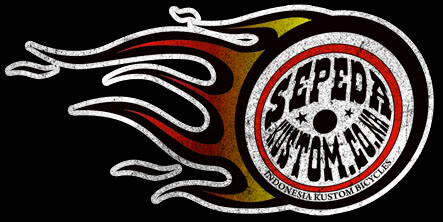Winston Tubman, talking with journalists at his house in Monrovia on 8 October 2011 Mr Tubman says fraud marred the first round of voting, but international observers disagree
The opposition candidate in next week's presidential run-off in Liberia, Winston Tubman, has said he will not take part.
He was due to stand against the incumbent, Ellen Johnson Sirleaf, who won about 44% of the vote in the first round in October.
He accuses Mrs Sirleaf of trying to resurrect a one-party state.
The presidential election is seen as a test of Liberia's fragile democracy after 14 years of vicious civil war.
"We will never reward fraud and abuse of power and will never grant legitimacy to a corrupt political process," Mr Tubman told reporters in Monrovia.
Continue reading the main story
image of Thomas Fessy Thomas Fessy BBC West Africa correspondent
Winston Tubman had strong words for Ellen Johnson Sirleaf when I spoke to him over the phone.
He accused her of putting up tyranny in place. But he believed that calling for a boycott would show her that she will have no legitimacy when she is re-elected.
Critics argue that the maths is simply not favourable to Mr Tubman and the boycott is the last card he could play, knowing he might lose a run-off. More importantly, his call for a boycott puts the legitimacy of the fragile Liberian democracy at stake.
If the Liberian people vote in large numbers despite the opposition call, Mrs Sirleaf will be able to claim full victory. It's a crucial time for the West African state struggling to recover from the bloodiest war in the region.
Speaking to the BBC's Thomas Fessy, he accused Mrs Sirleaf of trying to establish a tyrannical regime.
Mr Tubman's Congress for Democratic Change (CDC) party alleged widespread fraud in last month's first round, but international observers said the polls had been peaceful and transparent.
Mr Tubman called for a peaceful protest on Saturday and for his supporters to boycott next week's vote.
Instability plea
The new head of Liberia's election commission, Elizabeth Nelson, said the presidential vote would go ahead as planned.
The West African regional body Ecowas has warned that a boycott risks destabilising Liberia and called on Mr Tubman not to pull out of the process.
The former head of the election commission, James Fromayan, resigned last week after Mr Tubman's CDC complained it was biased.
Continue reading the main story
Liberia's presidential rivals
Ellen Johnson Sirleaf:
* Africa's first female elected head of state
* Harvard-trained economist
* Finance minister before Samuel Doe's 1980 coup
* Twice forced into exile
* Initially backed then-rebel leader Charles Taylor before falling out with him
* Won 2011 Nobel Peace Prize for helping end Liberian conflict
Winston Tubman:
* Nephew of Liberia's longest-serving President William Tubman
* Harvard-trained lawyer
* Justice minister under Samuel Doe
* UN envoy to Somalia from 2002 to 2005
* Came fourth in 2005 election
* Running mate is ex-football star George Weah
But the party had said other checks and balances had to be put in place for Mr Tubman to take part in the vote.
In the presidential run-off, Mr Tubman would have faced Nobel Peace laureate Ellen Johnson Sirleaf.
She became Africa's first female elected head of state after the 2005 elections following the end of Liberia's 14-year civil war in which 250,000 people were killed.
These are the first post-war elections organised by Liberians - the previous poll was run by the UN, which still has some 8,000 peacekeepers in the country.
Mrs Sirleaf gained 44% against 32% for Mr Tubman. A candidate needs most than 50% for outright victory.
Mr Tubman's running mate is former footballer George Weah, who was defeated by Mrs Sirleaf in the 2005 poll.
Former rebel leader Prince Johnson, who came third in the first round with 12%, has urged his supporters to back Mrs Sirleaf.
natural skin care for a beautiful skinInteractive Displays
